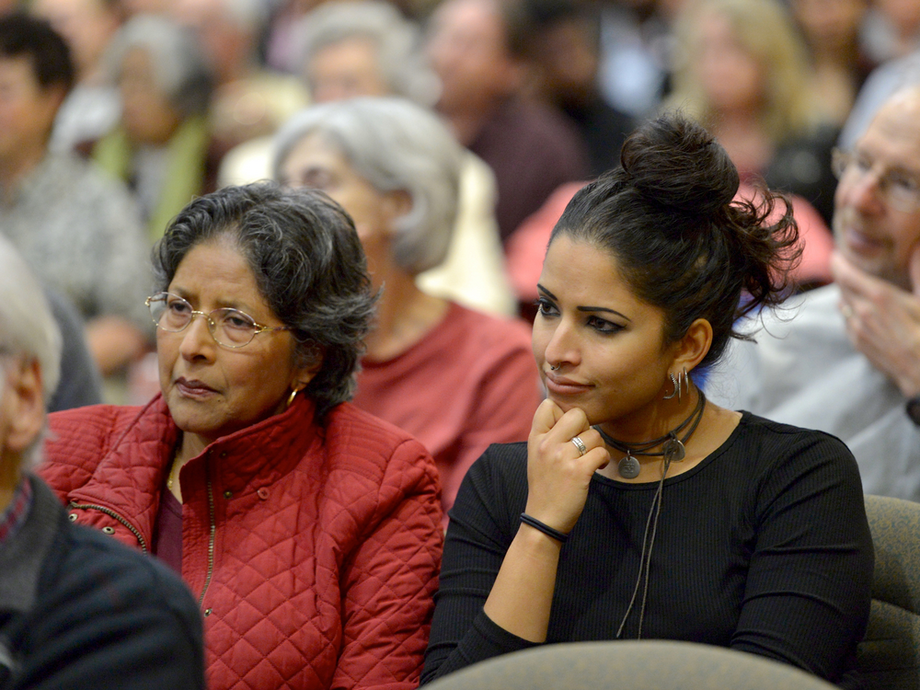How to Get the Most Out of a Candidate Debate
On Election Day, millions of Americans nationwide will head to the polls to cast a vote. Whether they're voting for a local, state, or federal election, voters can have their say on issues important to them and their communities. From governors’ races to city council bids, the leaders we elect will make important decisions on jobs, education, health care, and other issues that affect our daily lives.
No matter who or what will be on your ballot, one of the best ways to prepare for Election Day is to find out what the candidates stand for. A great way to learn more is to attend a candidate debate or forum in your community or watch one on TV. Candidate debates are a core feature of US politics that help voters learn more about a candidate and his or her stance on key issues. Candidates participate in debates at every level of government, from city council to state legislature, as well as Congress and the President of the United States.
To find out about upcoming candidate events in your area, check your local papers, blogs and news outlets, look into programming by your local League of Women Voters, or enter your address on VOTE411.org to search for upcoming events and voter information.
How can you get the most out of watching a candidate debate? We’ve pulled together some key tips for familiarizing you with the candidates and issues!
Before the Debate
Before the debate, find out which candidates are participating; while some debate hosts invite all candidates who have qualified for the race, others invite only candidates who met a pre-set list of criteria and some candidates may choose not to participate. Find out who’s participating in the debate and why!
- Take some time to research and familiarize yourself with the candidates and their platforms. Gather information about their positions from local newspapers, candidate websites and nonpartisan voter information websites such as VOTE411.
- In addition to researching the major issues that candidates have a stance on, be sure to decide what issues are most important to you.
- Make plans to watch or attend the debate with friends or family — discussing the performance with others can help you learn more.
- Consider the questions you may have and the information you want from the debate to help you in your decision-making.
- Create a candidate “report card” to help you keep track of what’s said during the debate.
- Open your mind to new opinions and impressions of the candidates regardless of their party affiliation.

During the Debate
Because candidates rehearse thoroughly for debates, it can be hard to solicit candid, spontaneous answers. Debates can emphasize form over substance, such as a candidate’s appearance instead of his or her stance on the issues. Throughout the debate, ask yourself pointed questions to help you judge both the performance of the candidates as well as the fairness and effectiveness of its format.
- Does the format give each candidate an equal opportunity to speak and respond to questions?
- Are the questions clear, fair and equally tough on all candidates?
- Does the candidate appear sincere, confident and relaxed? What image is he or she trying to create?
- Do the candidates give specifics about their stands on the issues, or do they speak in generalities? Do they support their positions and arguments with facts and figures? Do they answer questions directly, or do they evade them or fail to answer the specific question?
- Do they talk about their own policies and positions, or do they mostly attack their opponents?
- Are their proposals realistic? Can they actually carry out the promises they are making?
- Do they show how their backgrounds and experience qualify them to hold the office?
- Are their answers consistent with their previous positions, and if not, do they explain why?
If you’re watching a televised debate, ask yourself whether reaction shots or other editing techniques are used to create a sense of drama or conflict. Are you, for example, being influenced by comments made by reporters and commentators immediately before and after the debate?
After the Debate
Debates can be a lot of information to take in! Take some time after the debate to reflect on and clarify your thoughts about the candidates and the issues.
- Compare your impressions with others who watched or attended the debate.
- Think about whether you still have questions about the issues or the candidates and how you might follow-up with the candidates.
- Continue following the campaign by following news on the candidates, looking for additional information on VOTE411.org, and even asking candidates questions through channels like Twitter.
- Watch later debates for more information or to confirm your current impressions of the candidates.
This election year is important, and the outcome will affect your daily life and the well-being of your community. Help connect your friends and family with VOTE411.org to find all the information they need, and be sure to find your local League to learn when candidate debates are planned for your area!
Sign Up For Email
Keep up with the League. Receive emails to your inbox!
Donate to support our work
to empower voters and defend democracy.






